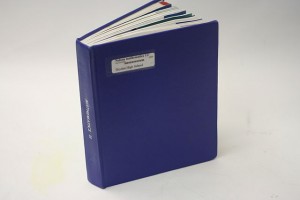
Much ink has been spilled on the aging Broadcast Engineer. While it is generally true, many of the old RF engineers are getting older, there are some younger guys and girls entering into the broadcast technical field. While this is a good development, I look on with a bit of disappointment and a jaundiced eye. The newer broadcast engineers have fewer mentors around as there are fewer broadcast engineers. In addition to that, those broadcast engineers that are still at it are likely very busy trying to fill all the rolls they have been assigned. I have also noted a certain reluctance to impart information to the newer engineers. Perhaps this is some sort of subconscious preservation instinct. Thus, when a young guy that works with us admitted that he didn’t know that much about RF, I was not surprised.
I remember my first mentors in the broadcast engineering field. They were mostly older, near retirement and wanting to pass on their knowledge to the next generation. Several times, Don Porter would sit down at the work bench and draw out some basic schematic diagram on a broken piece of gear and let me try to fix it. It took time and patience because I know I asked many silly questions and made many silly mistakes. Sometimes he would chastise me and sometimes he would laugh and say “I did the same thing once,” which would lead to an interesting story.
Most of the younger people entering the broadcast engineering field (by younger, I mean less than thirty), have some type of computer background. Since there are numerous computers in the studio fulfilling many different roles, having a technical computer person on staff is a good thing. However, those people are often tasked with going to the transmitter site to do maintenance and trouble shooting. That can lead to a dangerous situation. Transmitter sites are and should remain the domain of well trained engineers. Those that know the operating characteristics of a tube transmitter, if there is one present. Those that know the basic principals behind and automatic transfer switch, if there is one present. The real danger of an untrained person at a transmitter site is they don’t know what they don’t know.
Then there are trouble shooting skills, which are only developed with time and experience. It takes experience to recognize that a tower crew has applied the wrong type of connector to an STL transmission line. It takes experience to recognize the failure mode of a Harris transmitter. It takes experience to know when a situation is too dangerous to proceed and wait for help. Formal education is very important, but nothing can replace the education received on the job. The field of broadcast engineering is so diverse and complex that it would be nearly impossible to learn everything in a classroom.
To be a well rounded Broadcast Engineer, one has to have knowledge in many areas:
- Basic electronics and electricity: Being able to read schematic diagrams, know what the components do and trace out signal paths. Understanding basic RF amplification by solid state and tube devices, understanding TTL logic, data buses, power supplies, etc
- Radio Frequency Principles: Understanding the relationship between frequency and wavelength, antenna theory, antenna operation (MF, VHF, UHF), the relationship between power density and log functions, transmission line theory, propagation types and free space loss.
- Audio engineering: Best practices for analog and digital audio wiring, microphones, processing basic studio acoustics and sound, audio levels, analog and digital playback systems and recording.
- Computers and IT: Computer networking, structure wiring, operating systems, servers, automation software.
- Emergency Power: Basic functions and repairs for UPS, generators and transfer switches.
- HVAC: Basic HVAC principals and operations.
- Maintenance: How to maintain the facilities broadcast and broadcast related equipment.
- FCC regulations: Part 11, 15, 17, 73, 74, 101 and other FCC regulations pertaining to any broadcast operation.
- Other regulations: OHSA, NEC, fire code, ADA, local zoning, etc
And that is simplified list. Many Broadcast Engineers will gravitate toward one or two of the larger categories listed above, e.g. either Computers or RF. Most will know something about both.
The SBE offers several on line courses and webinars with there Education Program.
In addition, many equipment manufactures offer courses, technical publications and white papers:
- Axia White Papers and Presentations
- Broadcast Electronics Training
- Comrex Technotes
- Continental Electronics Knowledge Base
- ERI Inc White Papers
- Harris Broadcast Product Training
- JBL Technical Library
- Jensen Transformers White Papers and Articles
- LBA Group Wireless University
- Middle Atlantic White Papers
- Moseley Broadcast White Papers
- Nautel Webinar Archive
- Orban Tech Topics
- Radio Design Labs articles and papers
- Shure Publications
- Shively Labs Technical Publications
- Telos Systems Technology White Papers
- Wheatstone White Papers
This is just a brief list, I am sure there are many others available on the internet.
Of course, nothing beats mentoring. Taking an inexperienced, willing to learn person aside and showing them some of the things not taught in school or written in a manual is a rewarding experience. There are still those that get bitten by the radio bug and are worth the effort to bring along.
